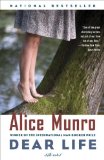Summary | Excerpt | Reading Guide | Reviews | Beyond the book | Read-Alikes | Genres & Themes | Author Bio

A Novel
by William Trevor"On a June evening some years after the middle of the last century…" begins veteran Irish storyteller William Trevor’s fourteenth novel. Though this sentence initially sounds like the invitation to a fairy tale, Trevor’s trademark lack of sentimentality and dry wit soon kick in as he describes the disappointments of a dying woman: "As death approached, she had feared she would now be obliged to join her husband and prayed she would not have to. Her daughter she was glad to part from; her son…Mrs Connulty had wept to leave behind." Anyone drawn to the title and expecting a Nicholas Sparks/Bridges of Madison County-style romance should approach with caution, but those who appreciate exquisitely paced narratives and keen emotional insights will relish this bracing examination of love and its limits.
Now 80, Trevor has spent a lifetime crafting powerful stories about the Irish, casting an objective, omniscient eye on his characters while conveying compassion for their flaws and missteps. Setting this love story in a small town gives him an opportunity to draft portraits of its citizens, a varied lot who display personality quirks both endearing and irritating.
Secrets gnaw at the hearts of many of Rathmoye's inhabitants, but Ellie and Florian's clandestine romance is the one that occupies center stage. Without ever descending into melodrama, Trevor captures the joy and torture that this affair brings to Ellie, a sheltered yet forthright young woman who has only ever known the convent where she grew up and the farm where she now lives with her husband, Dillahan. That Dillahan remains a sympathetic character throughout the novel is a credit to Trevor's subtlety as an author; his refusal to make him a villain further complicates Ellie's decision whether or not to leave the man who has only ever showed her love and kindness.
The most haunted characters in the book aren't actually human, though: they are the estates of Shelhanagh and Lisquin, former big houses in the grand English-Irish literary traditions. Florian is occupied emptying and selling his childhood home, Shelhanagh, a sad process that unfolds over the course of the summer until only his parents' watercolor paintings remain. Anyone who has ever disposed of loved ones' possessions will recognize the truth of these scenes. And if Shelhanagh's sadness comes from the knowledge that it once housed a happy family, then Lisquin's ghosts date from a much earlier time and display a flair for drama befitting their august former inhabitants, the doomed St. Johns. Orpen, a deranged elderly librarian who once cataloged Lisquin's books, provides some of the novel's most entertaining dialogue (more like monologue), as when he divulges to Ellie that the St. Johns fled the estate over the shame of their wayward sons: "'Men coming to the house looking for their women… Wives, daughters, it never mattered… It was the trouble that brought the family down, lady, only that wouldn't be said unless it was within the walls of Lisquin.'"
Weighty things happen in Love and Summer, a novel that works as a kind of time-lapse film of a town over the course of one simultaneously momentous and mundane season. Despite this seriousness, Trevor exercises a light touch that allows him to unflinchingly reveal his characters' inner conflicts without ever eliciting our pity or tears. His reserve might even strike some readers as coldness, and it's true that the novel thwarts any inclination to regard Ellie and Florian's affair as an epic tragedy, framing it instead as the sort of ordinary heartbreak that we all endure at some point. "'We've had our summer,'" Florian eventually tells Ellie, and in this sad yet strangely liberating tale, one summer might suffice.
![]() This review was originally published in The BookBrowse Review in October 2009, and has been updated for the
November 2010 edition.
Click here to go to this issue.
This review was originally published in The BookBrowse Review in October 2009, and has been updated for the
November 2010 edition.
Click here to go to this issue.

If you liked Love and Summer, try these:

by Edna O'Brien
Published 2017
Collected here for the first time are stories spanning five decades of writing by the "short story master." (Harold Bloom)

by Alice Munro
Published 2013
Suffused with Munro's clarity of vision and her unparalleled gift for storytelling, these tales about departures and beginnings, accidents and dangers, and outgoings and homecomings both imagined and real, paint a radiant, indelible portrait of how strange, perilous, and extraordinary ordinary life can be.
Your guide toexceptional books
BookBrowse seeks out and recommends the best in contemporary fiction and nonfiction—books that not only engage and entertain but also deepen our understanding of ourselves and the world around us.